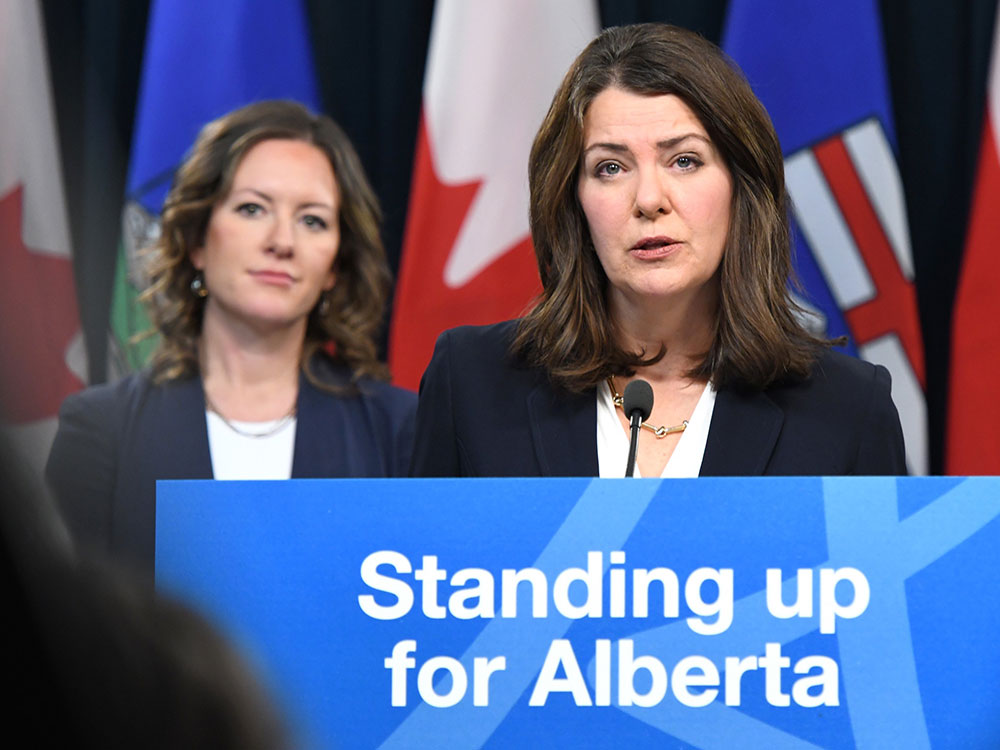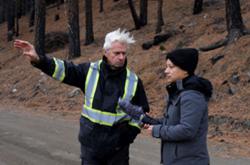It’s said that sunlight is the best disinfectant, and Quebec’s Parti Québécois Leader Paul St-Pierre Plamondon isn’t keeping his political plans hidden in the dark.
At a recent party conference he said, “One thing is certain, our moment will arrive earlier than we think... before the end of the decade. We will indeed experience a third referendum.”
It’s a plucky strategy for a PQ party leading provincial polls, as sovereignty is unpopular in Quebec at the moment. Making it the centrepiece of an election campaign seems risky when the party is likely to win without rocking the boat.
But perhaps Plamondon imagines that if he can take his party from the three seats won in the previous election to the 69 seats that he’s projected to win today, he can lead a similar rise in sentiment over the sovereignty question?
But Plamondon — like Alberta Premier Danielle Smith, who sometimes signals similar separatist dreams — faces some harsh economic realities of Quebec independence.
Ottawa spends roughly $15 billion more in Quebec than it collects in taxes. That would be the first thing to go in a separate Quebec, even before changes in investor sentiment and trade policy affected the province. Which may be why a majority of the population in the linguistically distinct and historically alienated nation-within-a-nation finds the country simply too prosperous to leave.
Alberta’s Smith actually believes that her province suffers the opposite problem of Quebec: it’s simply too prosperous to stay in Canada!
In 2022, Smith was a radio host gushing over the “Free Alberta Strategy,” a sovereigntist tract cooked up by her longtime political ally Rob Anderson and the Alberta Institute. Since then, she has successfully taken over the United Conservative Party and the premier’s chair and is now earnestly advancing policies straight from the strategy book.
Within the first dozen pages, the authors summarize their recommendations, beginning with the passage of the Alberta Sovereignty Act (which Smith accomplished in December 2022); the creation of an Alberta provincial police force to replace the RCMP (recently introduced legislation lays the bricks for this objective); the creation of an Alberta revenue agency designed to strong-arm the federal government into ending equalization payments (under review); opting out of any national programs deemed to overlap with provincial jurisdiction (including exiting Canada’s pension plan, opting out of a new pharmacare program and blocking bilateral deals between the federal government and Alberta universities and municipalities).
The only “Free Alberta” recommendation yet to be taken up by Smith’s government is a declaration that “the provincial government will replace the federal government as acting authority to negotiate Alberta’s international trade and market access relationships” — but don’t be surprised if we see that soon.
Taken together, these policies aim to make Alberta almost completely autonomous within Confederation with an “ancillary feature” being to “prepare Alberta for national political sovereignty should it become necessary.”
The wisdom of any one of these policy prescriptions could be debated ad nauseam, but there is a real deception being dealt to the people of Alberta and it isn’t only that Danielle Smith didn’t really run on these issues.
Rather, the premises for Alberta independence are completely flawed and based on the belief that Confederation is nothing but a sponge for oil money that rightfully belongs in Albertan pockets, to be shared only by generosity.
Actually, Alberta’s road from backwater agrarian economy to global oilsands kingpin didn’t happen in spite of Canada, but rather because of it. In 1996 Syncrude, which had already been propped up by the governments of Canada and Ontario, cut the ribbon on the largest mine in oilsands history at Mildred Lake, the first domino to fall in an economic boom unprecedented in Canadian history.
With Ottawa as a stakeholder, then prime minister Jean Chrétien attended the Mildred Lake opening and the federal government proceeded to spend billions of dollars to stand the oilsands up on its feet through capital investments, grants for technological research and tax exemptions on startup costs.
“This was a nation-building project,” said the former head of Syncrude Canada, Eric Newell. “We needed to all pull together.”
The Canadian government has generously subsidized Alberta oil producers year-over-year, culminating with $18 billion in pandemic relief being allocated to oil and gas companies in 2020 and a whopping $35 billion in Canadian taxes being sunk into the Trans Mountain oil pipeline expansion so far.
Federal dollars aside, there’s been an interprovincial net migration of over half a million people to Alberta since the success of Mildred Lake in 1996, mostly from Eastern Canada. These are the engineers, radio operators, rig mechanics, scientists and service workers who provided the labour that made Alberta’s economic expansion possible.
Additionally, it is banks headquartered in Toronto and Montreal that have provided the lion’s share of capital financing over the years and have backstopped Alberta’s energy industry with loans as international banks have divested. Oilsands companies received $25.2 billion from Canada’s Big Five banks in 2022 alone.
From the outset of this national-provincial partnership, the tacit understanding between Edmonton and Ottawa was that the province would benefit by adding reams of workers and corporate profits to provincial tax rolls, collecting 100 per cent of oil royalties along the way, and Canada would benefit from a net gain in national GDP and foreign investment subject to federal taxation.
Federal taxes are needed to fund a military, foreign service, central bank and national infrastructure that includes highways, rail lines and 840,000 kilometres of pipelines connecting oil and gas to two oceans and everywhere in between.
If Alberta were to join Bolivia and Paraguay as another landlocked country in the Americas, access to the national infrastructure becomes inhibited.
Albertans would face barriers to travel, tourism would collapse, labour and capital would hemorrhage as trade agreements were nullified and political uncertainties prevailed.
At the same time, a freshly anointed national government in Alberta would have a heavy crown to wear, financially burdened by defence spending, diplomatic missions, central banking operations and expanding the bureaucracy to manage everything from passports to tax administration to employment insurance to immigration and visas.
But what about Quebec? Separatists like René Lévesque, Jacques Parizeau and now Parti Québécois Leader Paul St-Pierre Plamondon have continuously moved their province in this direction and are handsomely rewarded with Canadian equalization payments. Right?
Not exactly. Canada’s equalization program is about five per cent of the federal budget and is generally allocated to provinces whose per capita GDP is below the Canadian average.
Quebec does not receive equalization because of its push for sovereignty. They receive equalization because of the chronic gap between their economic performance and the Canadian average.
In fact, it is more likely that the sovereigntist agenda in Quebec has hindered their efforts to close this gap, rather than helped it. For example, their autonomous pension plan demands higher contributions from workers and employers than Canada’s does, and their block on bilateral deals between the federal government and municipalities is a drag on construction starts. Despite those damaging consequences, these are policies that Danielle Smith and the UCP are actively emulating.
The country has a lot of problems. But the value of a union that connects 10 provinces and three territories to multiple oceans, well-endowed capital markets, an advanced national infrastructure and a skilled workforce isn’t one of them.
Both Smith and Plamondon would be wise to abandon the myopic path to a zero-sum game seeking to destroy the value of Confederation and, instead, leverage it for the good of their people. ![]()

















Tyee Commenting Guidelines
Comments that violate guidelines risk being deleted, and violations may result in a temporary or permanent user ban. Maintain the spirit of good conversation to stay in the discussion and be patient with moderators. Comments are reviewed regularly but not in real time.
Do:
Do not: